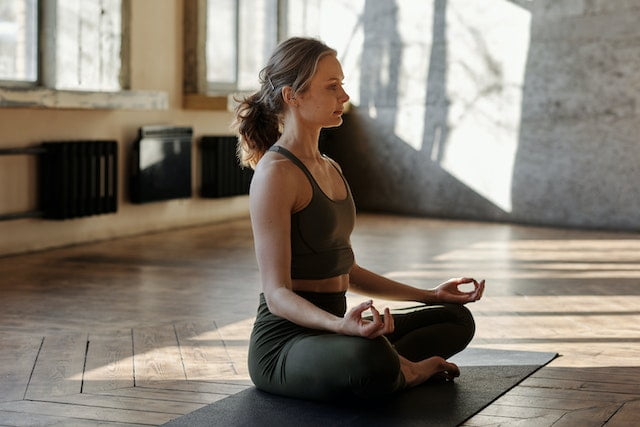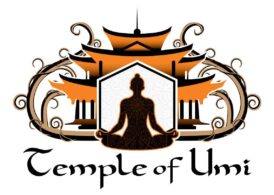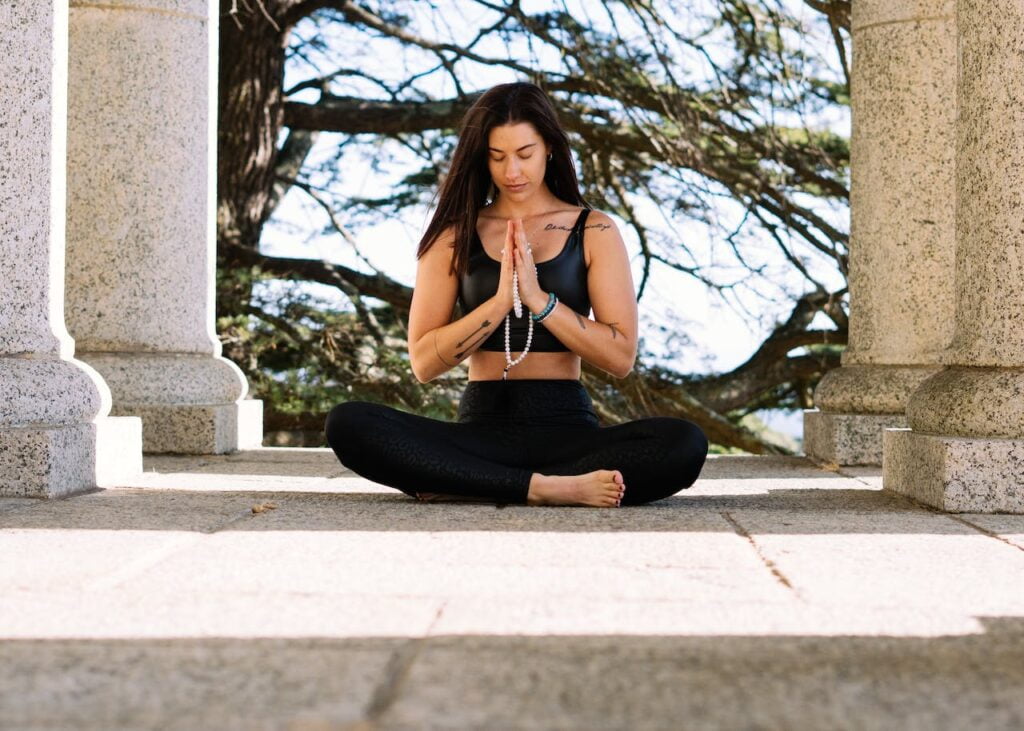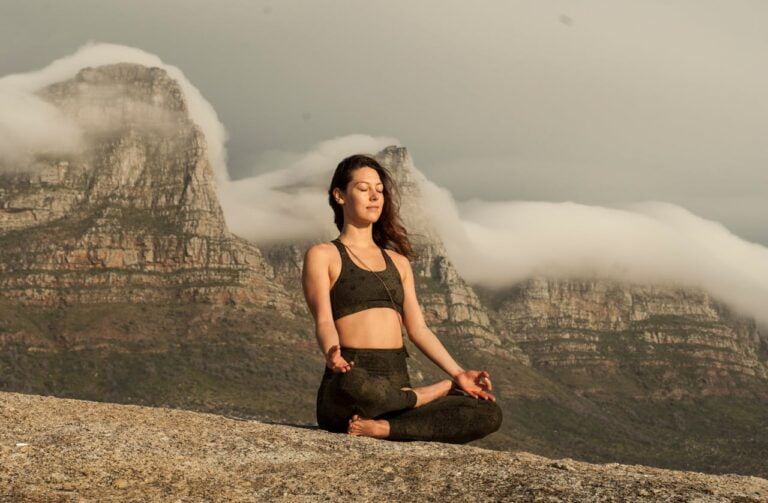Discover the transformative power of meditation with our comprehensive guide. Dive into the journey of self-discovery and inner peace today.
Introduction
In recent years, meditation has transcended its traditional boundaries to become a mainstream tool for enhancing mental well-being and achieving a balanced lifestyle. This ancient practice, once confined to spiritual and religious contexts, has now garnered widespread attention across the globe for its profound benefits on mental and physical health. The essence of meditation lies in its simplicity and universality, making it accessible to everyone, regardless of age, background, or belief system. Meditation offers a much-needed refuge in the fast-paced, digitally-driven modern world, allowing individuals to find peace, clarity, and resilience amidst chaos.
Understanding Meditation
The Essence of Meditation
Meditation is often misconceived as merely sitting silently, but it encompasses much more. Meditation is a practice of focused attention and mindfulness, aiming to foster a deeper connection with one’s inner self and the surrounding world. It is an inward journey transcending the physical act of sitting quietly, offering pathways to enhanced self-awareness and emotional health.
The roots of meditation stretch back thousands of years, spanning various cultures and civilizations. From the Buddhist monasteries of Asia to the ancient Indian scriptures of Yoga, meditation has been a cornerstone of spiritual and contemplative practices. Each tradition offers a unique perspective on meditation, yet all share the goal of achieving inner peace and enlightenment. Learn more.
Types of Meditation
- Mindfulness meditation emphasizes present-moment awareness, encouraging practitioners to observe their thoughts, feelings, and sensations without judgment. It cultivates mindful attention that enhances mental clarity and emotional stability. Learn more.
- Transcendental Meditation: Going beyond the immediate experiences of the senses, Transcendental Meditation involves repeating a mantra to dive deeper into one’s consciousness. This technique aims to reach a state of pure awareness where peace and creativity flow freely. Learn more.
- Guided Meditation: Led by a narrator or guide, this meditation takes participants on a mental journey, using vivid imagery and suggestions to foster relaxation and focus. Guided meditation benefits beginners, offering a structured path to mindfulness and tranquility. Learn more.
- Zen Meditation (Zazen): In Buddhist philosophy, Zen Meditation involves sitting in a specific posture and focusing on the breath. It emphasizes the importance of posture, breathing, and mind state and aims to achieve a state of alertness and relaxed awareness. Learn more.
The Benefits of Meditation
Mental Health Miracles
Meditation serves as a powerful tool in nurturing mental resilience and fostering a sense of inner peace. Individuals unlock remarkable benefits that contribute significantly to mental health improvements by delving into regular meditation practices.
- Reducing Stress and Anxiety: Meditation activates the body’s relaxation response through deep breathing and focused attention. This process not only diminishes the presence of stress hormones like cortisol but also instills calmness, effectively alleviating anxiety levels.
- Enhancing Focus and Concentration: Meditation cultivates improved clarity and attentiveness. By practicing mindfulness, individuals learn to maintain concentration on the present moment, leading to improved cognitive functions, including sharper focus and extended attention spans.
- Promoting Emotional Health and Well-being: Regular meditation encourages a deeper connection with one’s emotions, fostering a healthier perspective toward life’s challenges. This emotional attunement aids in cultivating a more positive outlook, resilience against negative thoughts, and a general sense of well-being. Learn more.
Physical Health Transformations
Beyond its profound mental health benefits, meditation also offers tangible physical health advantages, reinforcing its role as a holistic practice for overall well-being.
- The Impact on Blood Pressure and Heart Health: Meditation induces a relaxation response that directly affects blood pressure. By reducing stress levels, meditation helps regulate blood pressure, contributing to heart health and reducing the risk of cardiovascular diseases.
- Boosting the Immune System: Meditation can positively affect the immune system by reducing stress and promoting a balanced state of mind. Lower stress levels are associated with an enhanced immune response, helping the body fend off illnesses more effectively.
- Improving Sleep Quality: Incorporating meditation into one’s daily routine can significantly enhance sleep quality. By calming the mind and reducing the instances of racing thoughts, meditation makes it easier to fall asleep and extends the duration of deep, restorative sleep.
Meditation, with its dual focus on mind and body, offers a comprehensive approach to well-being. Its ability to bring about mental health miracles and physical health transformations underscores its value as a practice for personal development and maintaining and enhancing health. By integrating meditation into daily life, individuals can experience a marked improvement in their mental and physical health, paving the way for a more fulfilled and balanced life.

Getting Started with Meditation
Embarking on your meditation journey is an exciting venture toward self-discovery and inner peace. The first step to a successful meditation practice is setting the stage—both physically and mentally. Let’s dive into how to prepare your meditation space and master essential techniques to kickstart your training.
Preparing Your Meditation Space
Creating a serene and inviting environment is crucial for meditation. Your environment significantly influences your ability to relax and focus. Here’s how you can design a space that enhances your meditation experience:
- Choose a Quiet Corner: Select a space where distractions are minimal in your home. If you have the space, it could be a rarely used corner of a room or a dedicated meditation room.
- Keep It Simple: Clarity in your physical space translates to clarity in mind. A clean, uncluttered area helps reduce mental distractions and fosters a peaceful state of mind.
- Add Comfort: Ensure your sitting area is comfortable. A meditation cushion or a chair can provide support for longer sessions. Comfort in your physical body aids in focusing the mind.
- Set the Ambiance: Soft lighting, such as candles or dimmable lamps, can create a calming atmosphere. Consider incorporating elements of nature like plants or a small fountain for a refreshing energy.
- Essential Tools and Aids: While meditation requires few physical tools, certain items can enhance your practice. A meditation mat, a timer, and a blanket for warmth are excellent starters. For those who enjoy guided sessions, a device to play these meditations can also be part of your space.
Meditation Techniques for Beginners
Starting with meditation doesn’t have to be daunting. Focus on these fundamental techniques to build a strong foundation for your practice:
- Finding the Right Posture: Sit comfortably with your back straight. Whether on a cushion, chair or directly on the floor, ensure your posture promotes alertness and relaxation. The goal is to be comfortable yet attentive, avoiding slouching that might lead to drowsiness.
- Breathing Methods for Relaxation: Breath is the anchor of your meditation practice. Start by taking deep, slow breaths—inhaling through the nose and exhaling through the mouth. Focus on the sensation of breath entering and leaving your body. This focus will naturally calm your mind and reduce stress levels.
- The Role of Mindfulness and Presence: Mindfulness is being fully present and engaged with the moment without judgment. Begin by observing your thoughts and sensations without attachment. Recognize when your mind wanders, and gently guide it back to your breath or a chosen focus point. This practice enhances your ability to remain present and aware during meditation and everyday life.
Embarking on your meditation journey is both a personal and transformative experience. By carefully preparing your meditation space and embracing foundational techniques, you set the stage for a rewarding practice. Remember, the beauty of meditation lies in the journey, not the destination. Explore these practices with curiosity and openness, and watch as your life transforms from the inside out.
Overcoming Common Meditation Challenges
Addressing Obstacles in Meditation
Meditation, while profoundly beneficial, comes with its set of hurdles. The path to mastery involves recognizing and navigating these challenges effectively. Here, we delve into common obstacles and offer strategies to overcome them, ensuring your meditation journey is enriching and fulfilling.
- Dealing with Distractions and Wandering Thoughts
- Acceptance: Acknowledge distractions without judgment. Recognizing their presence without engaging allows you to refocus on your meditation gently.
- Anchor Points: Use your breath, a mantra, or ambient sounds as an anchor. When your mind wanders, gently return your focus to this point.
- Regularity: Consistent practice trains the mind to become less susceptible to distractions over time.
- Handling Physical Discomfort During Meditation
- Ergonomics: Ensure your meditation posture is comfortable yet supportive. Use cushions or chairs that alleviate pressure on your body.
- Movement: Incorporate gentle stretches before sitting. If discomfort arises during meditation, allow subtle adjustments to find ease.
- Gradual Increase: Start with short periods and gradually extend your meditation time as your body adapts to sitting still.
- Staying Motivated and Consistent
- Set Realistic Goals: Begin with manageable goals and gradually increase your meditation time.
- Community Support: Joining a meditation group or finding a meditation buddy can bolster your commitment.
- Reflect on Benefits: Regularly remind yourself of the positive changes meditation brings to your life, reinforcing your motivation. Learn more.
Integrating Meditation into Daily Life
Making Meditation a Habit
Embedding meditation into your daily routine ensures you reap its benefits consistently. Here’s how to cultivate a meditation habit that sticks:
- Tips for Consistent Practice
- Schedule It: Treat your meditation like any other necessary appointment. Find a time that works for you and stick to it.
- Use Reminders: Setting alarms or calendar reminders can help keep your practice on track.
- Flexibility: Be open to adjusting the length and type of your meditation to fit your daily schedule.
- Short Meditation Sessions for Busy Schedules
- Micro-Meditations: Integrate brief, 1-5 minute meditations into your day, such as during a break or before a meeting.
- Mindful Moments: Use routine activities like brewing tea or waiting in line as opportunities for mindfulness practice.
Beyond the Cushion: Living Mindfully
Meditation’s impact extends far beyond the moments of practice—it’s about cultivating an approach to life filled with awareness and compassion.
- Applying Meditation Principles in Daily Interactions
- Active Listening: Practice fully concentrating on the person speaking to you, fostering deeper connections and understanding.
- Non-Reactive Behavior: Observe your emotions and thoughts without immediate reaction, allowing for more measured and mindful responses.
- The Impact of Meditation on Relationships and Work
- Improved Communication: Mindfulness enhances clarity and empathy, leading to more effective and compassionate communication.
- Stress Management: Regular meditation equips you with stress management tools, benefiting your professional performance and personal relationships.
Integrating meditation into your life is a journey that enriches your well-being and interactions with the world. Through consistent practice and mindful application, you unlock a reservoir of peace, resilience, and connectivity, enhancing every aspect of your life. Learn more.

Final words
As we draw our exploration of meditation to a close, it’s clear that this ancient practice holds a transformative power that transcends time and culture. In its myriad forms, meditation offers a gateway to inner peace, enhanced mindfulness, and a renewed sense of purpose. It’s not merely an act of sitting in silence; it’s an invitation to journey inward, discovering the depths of our consciousness and the potential for personal growth.
- The Transformative Power of Meditation:
- Meditation connects the mind, body, and spirit, fostering harmony that resonates throughout life.
- Regular meditation practice has been shown to reduce stress, alleviate anxiety, and promote emotional health, contributing to a more balanced and fulfilling life.
- Beyond mental and emotional benefits, meditation impacts physical health by lowering blood pressure, enhancing sleep quality, and boosting the immune system.
- Embarking on the Meditation Journey:
- Beginning your meditation journey requires no special equipment, only an open heart and a willingness to explore the landscapes of your mind.
- Whether you carve out a quiet space at home or find moments of mindfulness throughout your day, each step is toward greater self-awareness and peace.
- Remember, meditation is a practice that grows and evolves with you. There’s no “right” way to meditate; the best approach is the one that resonates with you and fits into your life.
We invite you to embrace meditation not just as a practice but as a journey that unfolds in unique and personal ways for each individual. The benefits of meditation are as vast and varied as the experiences that lie in wait. So, we encourage you to take the first step, let go of any expectations, and allow meditation’s transformative power to work its magic in your life.
As you embark on this journey, remember that the path of meditation is one of discovery, patience, and, most importantly, kindness to oneself. May your meditation practice bring you closer to the serenity, clarity, and joy within you.










